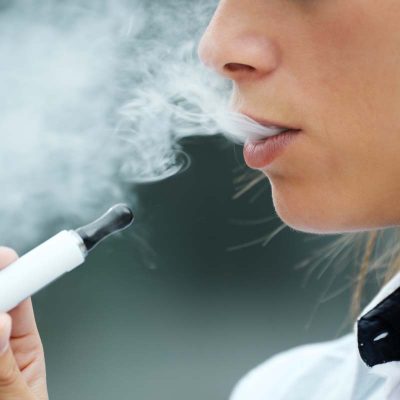- Do you vape even though you know the health risks?

- Despite wanting to stop vaping, do you continue to slip?
- Has the school taken disciplinary action against your son or daughter?
- Is it hard to concentrate sometimes?
- Are your grades slipping, or are you forgetting to turn work in?
It’s hard to avoid it.
High school bathrooms are commonplace for vaping. The small devices used to vape can look like everyday items such as a USB drive. Recent studies show that E-cigarette use has increased 78 percent in one year for high schoolers and 48 percent for middle schoolers. vaping is incredibly dangerous as the consequences of vaping include:
- Just as addictive as cigarettes
- It causes you to ingest all kinds of chemicals.
- Linked to chronic lung disease and asthma
- It raises your blood pressure and spikes your adrenaline, which increases your heart rate and the likelihood of having a heart attack.
- Can slow brain development in teens and affect memory, concentration, learning, self-control, attention, and mood
- Increases the risk of other types of addiction later in life.
We help people avoid and recover from addictions.
At Psych Associates, we understand that addictions don’t “just happen.” It is usually a slow progression with lots of different steps. Some advantages come with some habits, or you would have stopped before. Our counselors listen and will help you understand the cycle you are in. We’ll teach you skills and techniques to help you reach your goals.
If you are ready to learn how we can help you quit vaping or other addictive behaviors, call Psych Associates at 417-414-0333 or schedule your appointment online.
Typical signs include cravings for vaping, feeling anxious or irritable when unable to vape, increased usage over time, difficulty cutting down, neglecting other tasks or responsibilities, using vaping as a way to manage stress or mood, or continued usage despite negative health effects.
Effective approaches often include Cognitive Behavioral Therapy (CBT) to identify triggers (e.g. stress, social situations), build healthier coping strategies, relapse prevention planning, motivational interviewing to strengthen commitment to quit, and sometimes participation in support groups or psychoeducation. The goal is both reducing physical dependence and changing habits around vaping.
Progress varies depending on how long someone has been vaping, how strong the addiction is, and how committed they are to change. Many people begin noticing improvements—fewer cravings, better control, better mood—within a few weeks of regular sessions. More meaningful, sustained quitting usually takes longer, with setbacks expected. Your counselor will help you set realistic goals and monitor progress.


